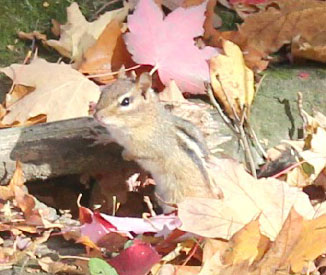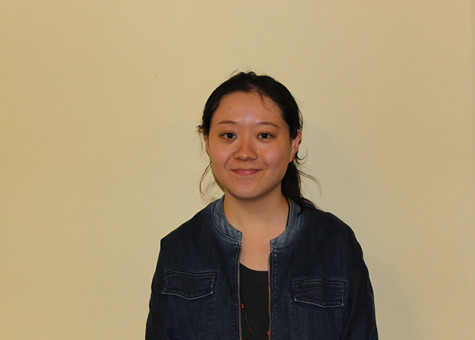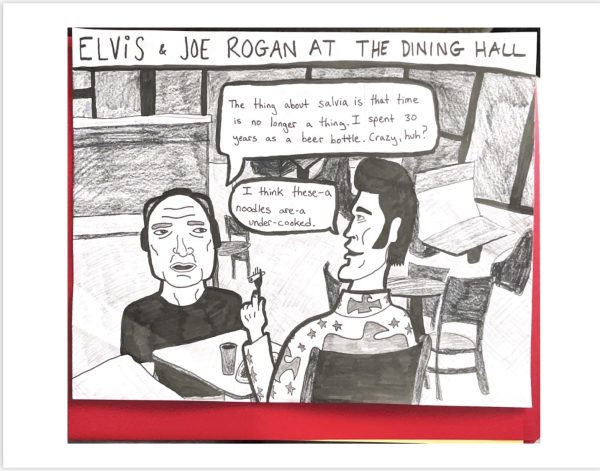Chipmunk freed, now fights and frolics

A chipmunk is among a pile of red leaves.
October 28, 2015
This fall, the bookstore had an unexpected visitor – a chipmunk.
It had been in the bookstore for a few days, Campus Grounds Supervisor David Finney said.
“It was snacking on peanuts and peanut butter cups before they (the bookstore employees) called me.”
He said his only interaction with chipmunks this fall was with the chipmunk that found its way into the bookstore.
He captured it, Finney said.
“At first, we tried one of the sticky-board traps that Ehrlich Pest Control uses for rodent control, (but) the chipmunk got stuck, then chewed the sticky-board in half and escaped.
“Next, we used the Havahart trap, which was successful. I released him (the chipmunk) in the lawn at the Gazebo.”
According to Finney, a Havahart trap is a trap that catches an animal without harming it.
Finney said it looked pretty healthy. “He was happy to be free again.”
Finney said he had not noticed any changes in the chipmunks this year, although there seems to be a large number of them.
“I see them all over campus; they are plentiful.”
Assistant biology professor Christine Dahlin said she has not noticed any changes in the chipmunks on campus, either.
Although her research does not focus on mammals, Dahlin said she would potentially suggest chipmunks as a research subject for one of the upper biology lab research projects for several reasons, she said.
Chipmunks are numerous, easy to observe and diurnal (active during the day).
“… And they engage in a number of interesting behaviors, such as food caching, vocalizing and fighting with other chipmunks over territories and/or food.”
Food caching is when an animal stores or hides food that it does not immediately needs so that it can eat the food later.
Many animals that live in a cold winter environment cache food, so they can have food over the winter months when fresh food is unavailable, she said.
“They usually cache food like nuts that stay good for a long period of time.”
“Vocalizing means any kind of audible sound. When we talk, we are vocalizing.”
She also said that chipmunks are appropriate subjects for classes such as Vertebrate Biology and Animal Behavior.







